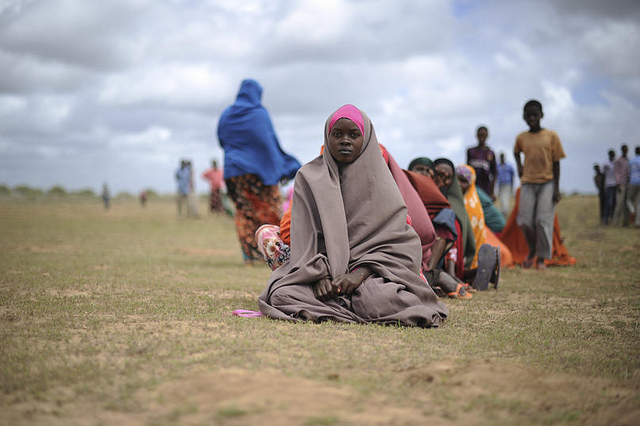It’s hard to disagree with the threat assessment that Julian Cribb makes in his recent Strategist post ‘Food … or war?’. We’re witnessing an emerging food crisis that’ll become the dominant human narrative for the rest of the century. However, his perplexing use of history and the wishful thinking in his proposed solution undercut the strength of his argument.
Cribb is right that those fortunate enough to live today in Australasia, North America and northern Europe don’t know as much war as other regions of the world. To again borrow Jimmy Carter’s observation, the people of these regions (at least most of them) have enough to eat. But Cribb’s conclusion is based on a false comparison and a simplistic understanding of the causes of war. That hunger equals war doesn’t necessarily mean that plenty equals peace. War is a human activity that encompasses the full range of human emotion and needs. Its causes were best captured over 2500 years ago by Thucydides in his history of the Peloponnesian War; Fear, Honour and Interest. Hunger is just one factor of the complex calculation that states and peoples undergo when they decide upon war as a means to obtain what they want.
By limiting his analysis to the past thirty years, Cribb also shows an under-appreciation of the histories of the North American, Australasian and Northern European regions. The few decades of peace that these regions have enjoyed are actually an anomaly. A longer time line would show that violence is as much the norm in these parts of the world as it is elsewhere. The actuality is that the wealth that supports these societies was obtained by the violent displacement of indigenous populations and the expropriation of their land. Additionally, that these regions now enjoy tranquillity is not quite true. During this period the United States, Australia, Britain and other European states have all been attacked by sub-state actors and all have initiated and/or participated in wars—just not ones on their own territory.
I do, however, agree completely with Cribb’s prediction of a coming crisis in food availability and the possibility that it will be the cause of conflict and war. We’re witnessing states beginning to unravel under the strain of a host of resource shortages, most importantly that of water, exacerbated by the growing demands of increasing populations. As Lester Brown, of the Earth Policy Institute has explained, many of the world’s current hot spots are suffering from water shortages and ‘Peak Water’ is soon followed by ‘Peak Grain’. The current conflicts in Syria, Egypt and elsewhere in the Middle East have many causes, but the one factor present in all is rising food prices. Other parts of the world are also susceptible, as resource availability doesn’t meet the needs of a growing population.
By all means, ways to improve the global food supply should be sought. The prospects of war should be minimised at every opportunity. But in an era of rising tension, when the prospect for conflict is worsening, where the availability of resources to meet human requirements is lessening rather than growing, this isn’t the time to abandon military strength. Cribb may see war as the problem, but his view is misdirected. The real issue is the tyranny of limits and our species’ failure to accept that it doesn’t inhabit an infinite world. This means that the future security environment is not one of Food or War, but of Famine and War. History tells us that we should prepare for both.
Albert Palazzo is a senior research fellow at the Land Warfare Studies Centre. The views expressed here are his own and do not reflect those of the Australian Army, Department of Defence or the Australian Government. Image courtesy of Flickr user United Nations Photo.


